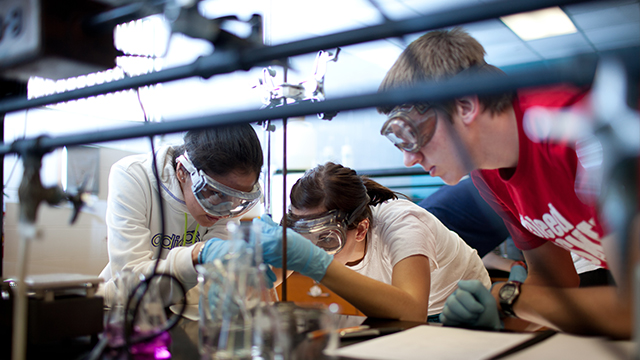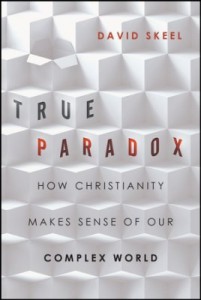Putting The Body Back In Biology: Natasha Myers’s book, Rendering Life Molecular, examines science as a cultural practice. She explores the ways in which scientists’ intuitions, attitudes and expectations are shaped by their shared work together in the setting of their scholarly communities. Her focus is on the protein, chains of amino acids and amino acids produced by DNA […]
Items included on this page come from a variety of sources. The perspectives conveyed may or may not express a Lutheran ethos. They can serve our instruction as discussion-starters, examples (positive and negative), and illustrations of intersections between God’s two kingdoms, intersections sometimes characterized by tension, sometimes by congruence. Inclusion does not imply endorsement.

Neuroscience, the Law, and Free Will
Rise of the Neurolawyers: A position paper on law, the courts, and neuroscience. A number of scientists, lawyers, and philosophers suspect that free will is going the way of geocentrism to make room for a revamped theory of human action more in line with the findings of research. The article can serve as an opening piece for […]
Three-Parent Embryos, cont.
FDA Committee Cautiously Endorses MRT: An elite panel of scientists and bioethicists offered guarded approval of a form of genetic engineering that could prevent congenital diseases but would result in babies with genetic material from three parents. The committee concluded that it is ethically permissible to “go forward, but with caution” with mitochondrial replacement techniques (MRT). […]
Architecture and the Sacredness of the Physical World
Making the Garden: There is a necessary connection between God and architecture, and that this connection is, in part, empirically verifiable. Further, the sacredness of the physical world—and the potential of the physical world for sacredness—provides a powerful and surprising path towards understanding the existence of God. (An essay by Christopher Alexander, emeritus professor of architecture at UC, […]
Gleiser Series on Origins
The Search For The Oldest Life On Earth: This article begins a series by Marcelo Gleiser on “what we know of the complicated question of the origin of life on Earth — and the possibility of life elsewhere. There are three essential questions we may ask, none with a simple answer: When did life originate? […]
Religion and Evolutionary Psychology
Why humans find it hard to do away with religion: A summary and critique of current explanations for religion from evolutionary psychology — “The belief that we live under some kind of supernatural guidance is not a relic of superstition that might some day be left behind but an evolutionary adaptation that goes with being human. […]
Randomness, Chance, and Order in Creation
God’s Dice: Randomness is distinct from the Greek concept of chance. Conflating the two imports to science the sense that random events are gratuitous. Mathematician James Bradley discusses Darwin, Einstein, Bohr, and explores the theme that indeterminacy in God’s creation can be purposeful.
The Virtue of Anger
Hating the Way Jesus Hates – Why more believers need the courage to get angry at sin: Students in psychology, literature. the neurosciences, political science and other disciplines may find this interview applicable to the proper role of affect in Christian vocation. Aristotle defines “inirascibility,” as a deficit in anger which means not being angry when you should […]
Neuroscience = Reductionist Materialism?
An Open Mind? — Do the wonders described by contemporary neuroscience require us to affirm a radical materialist conception of human nature? The question is not whether neuroscience offers exciting new evidence about human behavior. Rather, it is how we interpret the evidence. Students can use this essay to examine the perennial mind/body question and […]
“Concussion” — A Christian Case Re Football?
“Concussion” Makes a Christian Argument Against Football: Students across several areas of study and interest may find the arguments within and about this film worth exploring. “The movie’s moral arguments are framed less as matters of medicine than of religious faith. It’s not a sports movie, or a medical thriller, so much as a Christian […]


 True Paradox: How Christianity Make Sense of Our Complex World
True Paradox: How Christianity Make Sense of Our Complex World